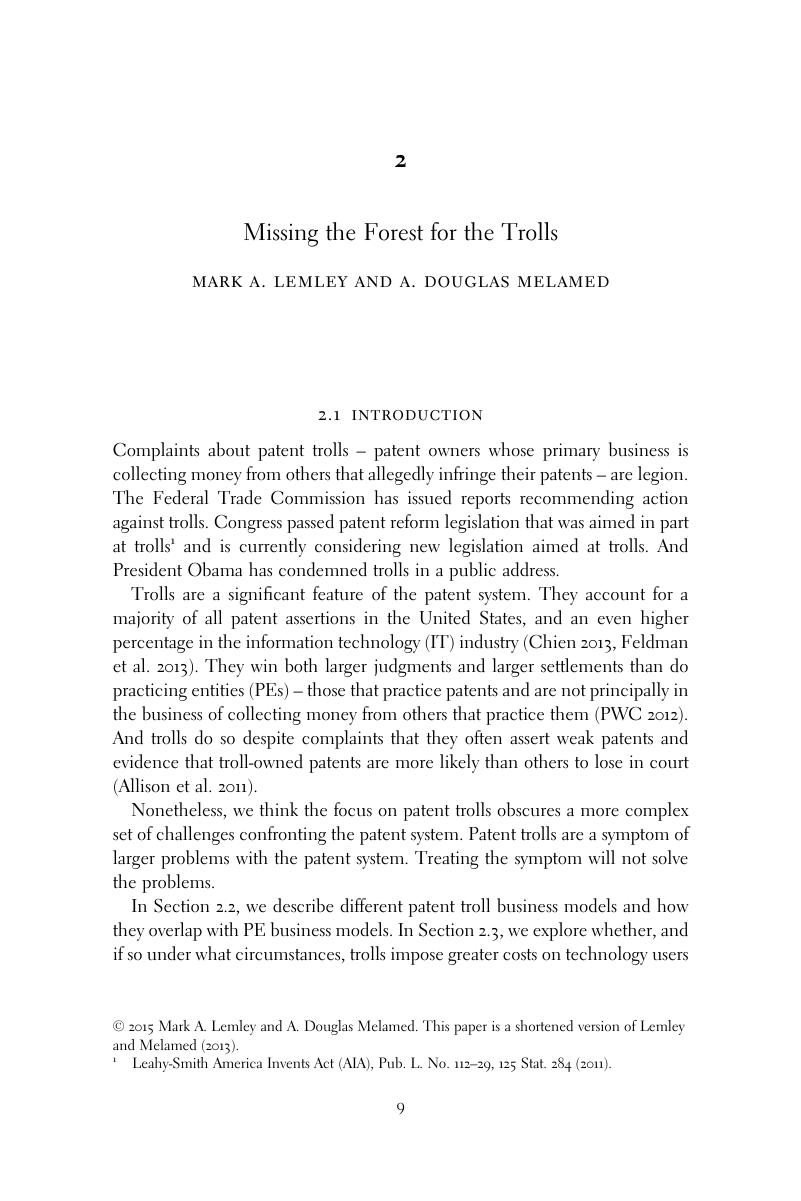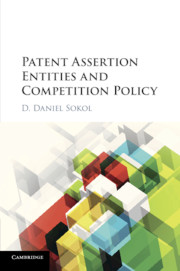Book contents
- Patent Assertion Entities and Competition Policy
- Patent Assertion Entities and Competition Policy
- Copyright page
- Contents
- Contributors
- 1 Introduction
- 2 Missing the Forest for the Trolls
- 3 Empirical Evidence on the Behavior and Impact of Patent Trolls
- 4 Assertion of Standard Essential Patents by Non-Practicing Entities
- 5 Patent Privateering
- 6 Regulating Patent Assertions
- 7 Patent Assertion Entities in Europe
- 8 Treatment of Patent Assertion Entities under Korean Antitrust Law
- 9 Patent Assertion Entities Issues in China
- 10 Patent Assertion Entities and Competition Law in Japan
- 11 Patent Assertion Entities in Merger Review in Taiwan
- Index
- References
2 - Missing the Forest for the Trolls
Published online by Cambridge University Press: 02 March 2017
- Patent Assertion Entities and Competition Policy
- Patent Assertion Entities and Competition Policy
- Copyright page
- Contents
- Contributors
- 1 Introduction
- 2 Missing the Forest for the Trolls
- 3 Empirical Evidence on the Behavior and Impact of Patent Trolls
- 4 Assertion of Standard Essential Patents by Non-Practicing Entities
- 5 Patent Privateering
- 6 Regulating Patent Assertions
- 7 Patent Assertion Entities in Europe
- 8 Treatment of Patent Assertion Entities under Korean Antitrust Law
- 9 Patent Assertion Entities Issues in China
- 10 Patent Assertion Entities and Competition Law in Japan
- 11 Patent Assertion Entities in Merger Review in Taiwan
- Index
- References
Summary

- Type
- Chapter
- Information
- Patent Assertion Entities and Competition Policy , pp. 9 - 26Publisher: Cambridge University PressPrint publication year: 2017

